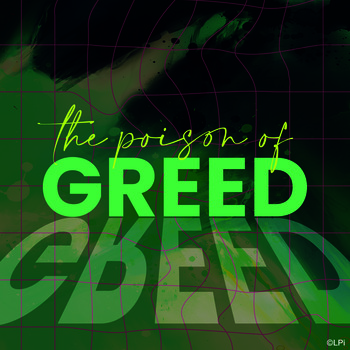Greed
-
 August 2, 2025“The society called him a success story of from rags to riches. The social media treated him as an influencer and mover. In the business world, he was called a magnate, a mogul. But God called him a fool.”
August 2, 2025“The society called him a success story of from rags to riches. The social media treated him as an influencer and mover. In the business world, he was called a magnate, a mogul. But God called him a fool.”
In our Gospel this 18th Sunday in Ordinary Time,Jesus uses the parable of the “rich fool” to teach his listeners, - us, about the problem of greed. The richman was not called a fool because of what he has earned, of what he has saved nor of what he was enjoying as fruits of his labor. He was called a fool because he allowed his wealth to cut off his relationship with God and with others. His foolishness is rooted not of what he accumulated but of the attitude that goes with what he has.
Notice that he was conversing not with anybodyelse but to himself, ‘What shall I do, for I do nothave space to store my harvest?’ And he said,‘this is what I shall do: I shall tear down my barnsand build larger ones. There I shall store all mygrain and other goods and I shall say to myself,“now as for you, you have so many good thingsstored up for many years, rest, eat, drink, bemerry!’ (Luke 12:18-19) Nobody exists but him,not even God. He neither cares for others norGod.
Greed cuts off our relationship with other people and definitely, with God. Greed isolates us from being motivated in following and living up the two great commandments, love of God and love of neighbor. And so Jesus has warned us, “Take care to guard against all greed, for though one may be rich, one’s life does not consist of possessions.” (Luke 12:15) Our desire of having more than what we have, more than what we can get,more than what is rightfully ours is greed that forces us to be inaccessible into the ‘sink hole’ of foolishness.
The more we want to accumulate, the less we are satisfied. So there’s this unanswerable question of “When is enough, enough?” There is this ‘hole’ within that continually being filled up but actually limitless. Greed deforms our values and makesus into that insatiable being, wanting for more until enough is not enough at all.
The Second Reading from the Letter of St. Paul to the Colossians reminds us of how to get out from that ‘sinkhole’ of foolishness and be satisfied with what we have and what we are, “Think of what is above, not of what is on earth.”:(Colossians 3:2) St. Paul encourages us to focus our thoughts and attentions on heavenly things,bearing in mind our relationship both with God and neighbors, emphasizing our concern of possessing the love of God and neighbor rather than possessing the love of worldly allurements, lest,we fall into the ‘sinkhole’ of foolishness, where the Book of Ecclesiastes in our First Reading says, “vanity of vanities, all things are vanity.” (Ecclesiastes 1:2)
